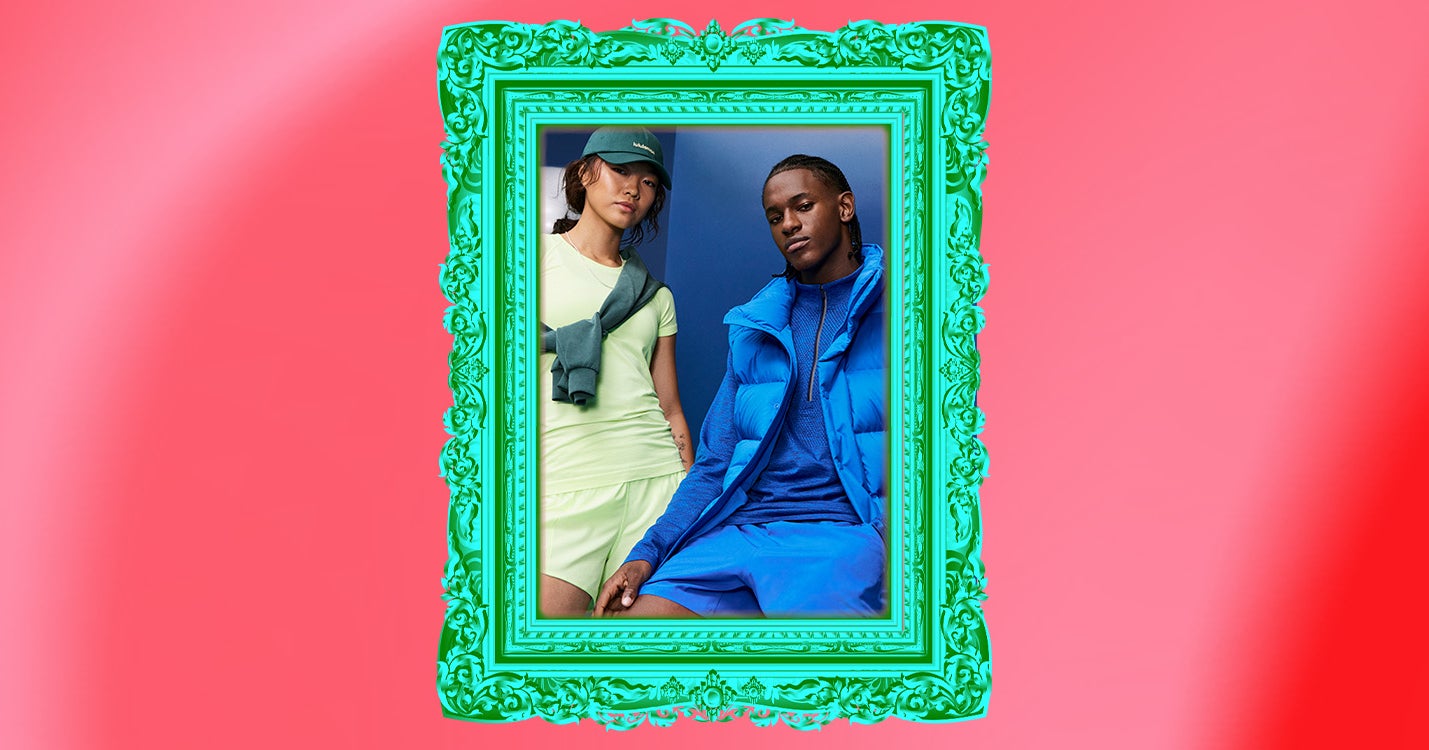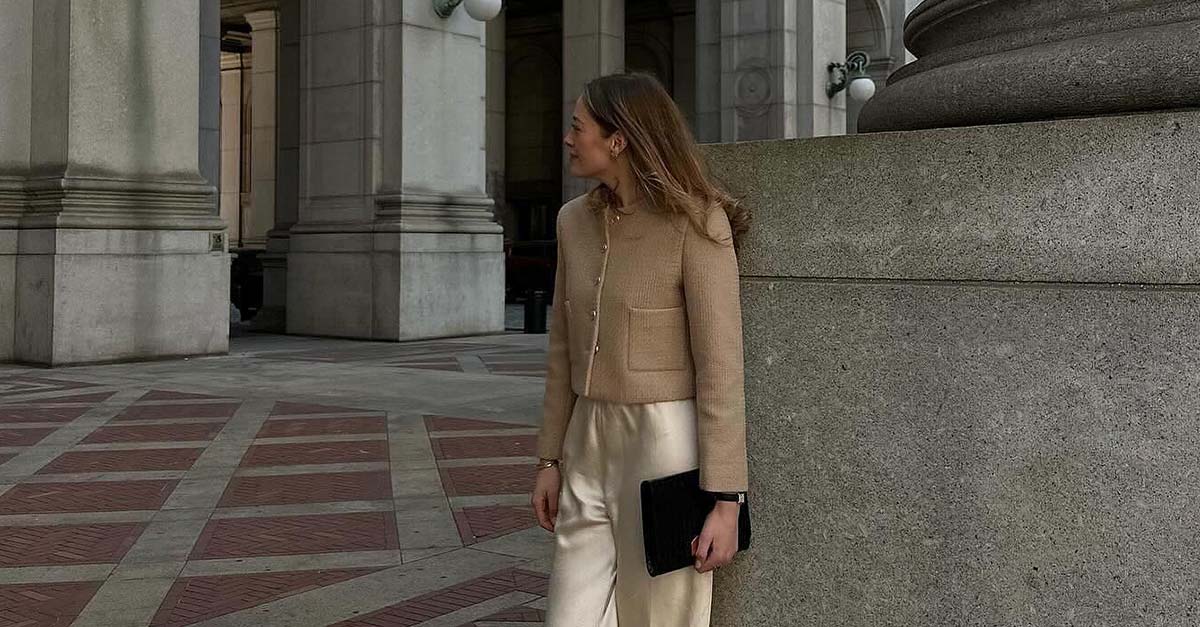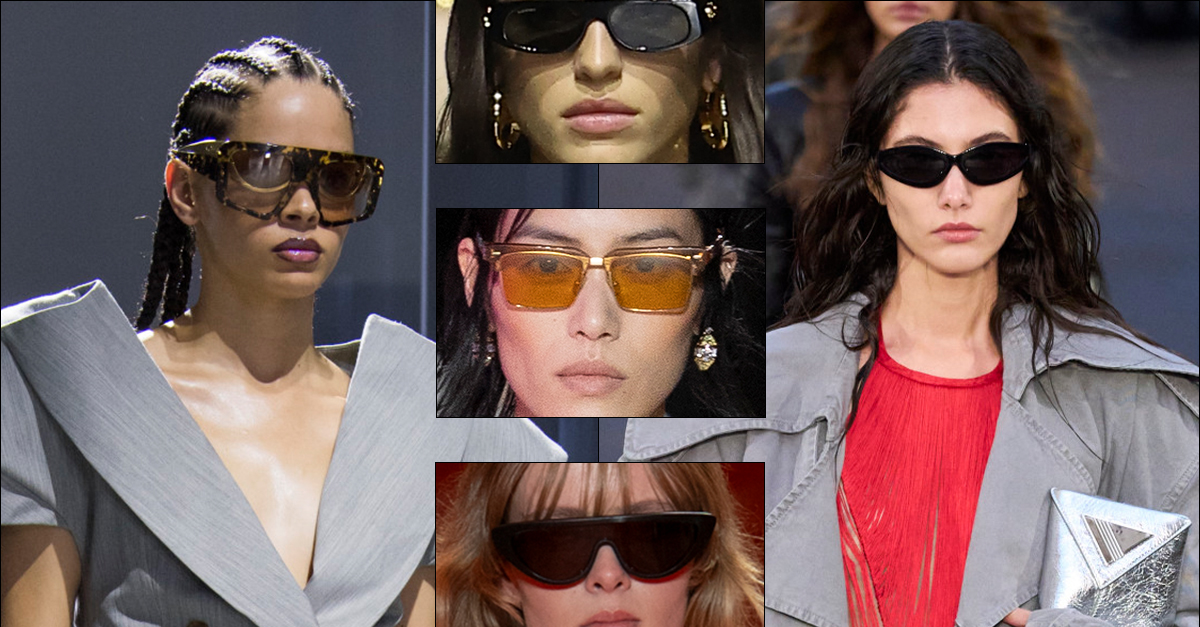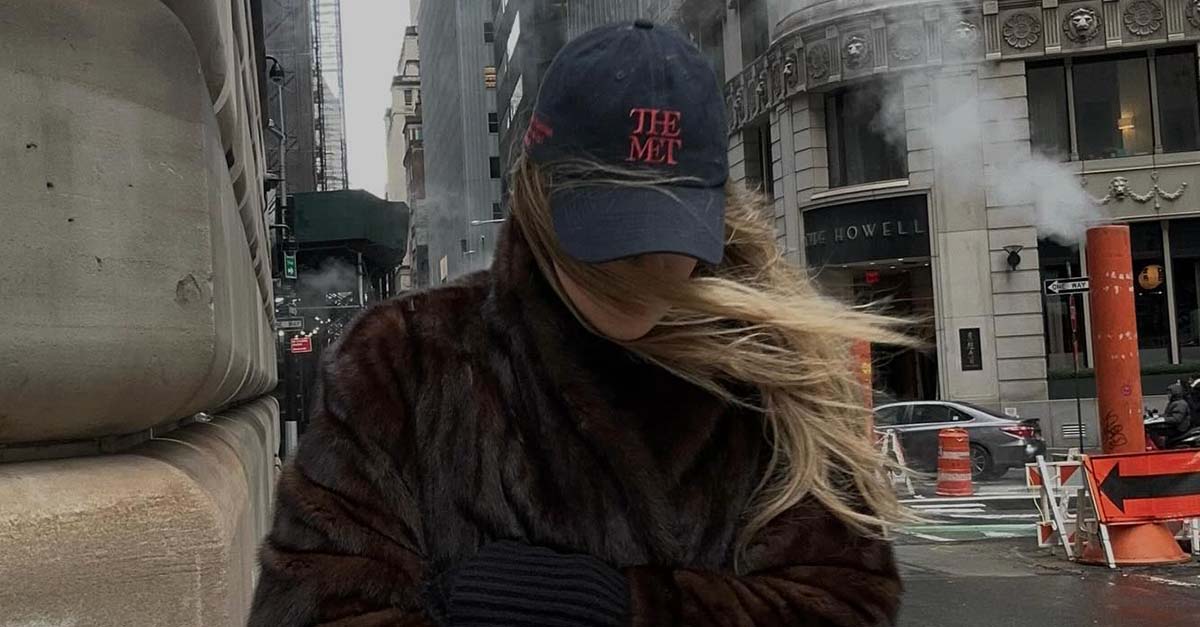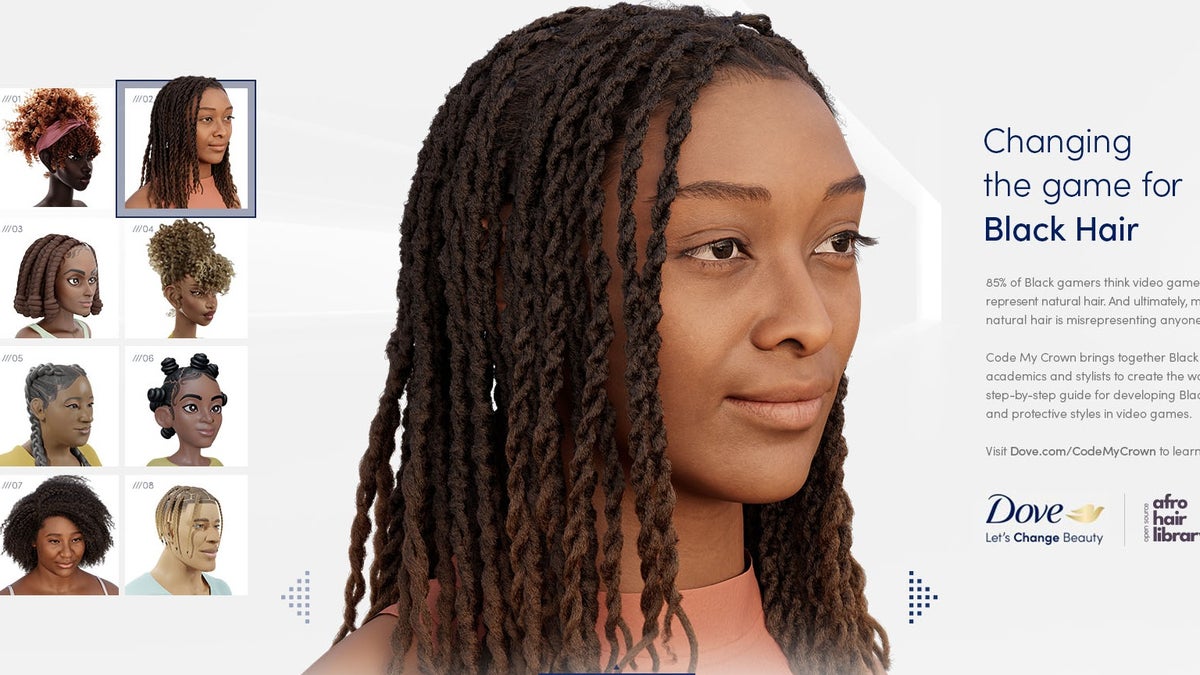
When you think of the word “gamer,” do you see yourself? If the answer is no, you’re not alone. According to an online survey conducted by Edelman DXI,85 percent of Black gamers believe video games poorly represent textured hair. Meanwhile, 91 percent of Black gamers say they want to see the characters in the games they play accurately represent them.
Dove – also known for incredible initiatives like the CROWN Act and Real Virtual Beauty – is partnering with the Open Source Afro Hair Library to change that. Together, they launch Code My Crown, the first-ever guide to coding textured hair types in the gaming sphere today. A team of expert hair stylists, 3D artists, animators, and programmers came together to create 15 unique hair sculpts for people to code into their games: Bantu knots and cornrows included.
“Code My Crown is advocating to see greater authenticity and diversity of Black hairstyles in games,” says A.M. Darke, who helped put together the team of Code My Crown’s 3D experts, and the Afro Hair Library founder says. “We saw how there’s a lack of education in terms of how coders can incorporate this. So we’ve created a step-by-step guide,” she says. “We hope to add a level of authenticity and Black cultural knowledge to gaming.”
For celebrity hairstylist, Nai’vasha Intl, “it’s been a super detailed process,” she says. Intl was responsible for creating several of the looks on real life hair models for the 3D artists and programmers to mimic virtually. “I drew inspiration from the models’ face shapes, their lifestyles, and what felt authentic to them. And I love that the team was so careful and so thoughtful, too, about every single step of this process: from conception, all the way to execution.”
The cherry on top of it all, is that you can access this guide for free, any time on the Dove website. “I’m really looking forward to this current generation and future generations seeing themselves reflected in games and knowing that they are entitled to this space,” Darke says. “I want them to know that they can be themselves unapologetically,” she adds. “I think this is ultimately not going to only change the kind of images that we’re seeing, but actually get more diverse people into the space of creating and designing games because they’ll feel like they belong, too.”

